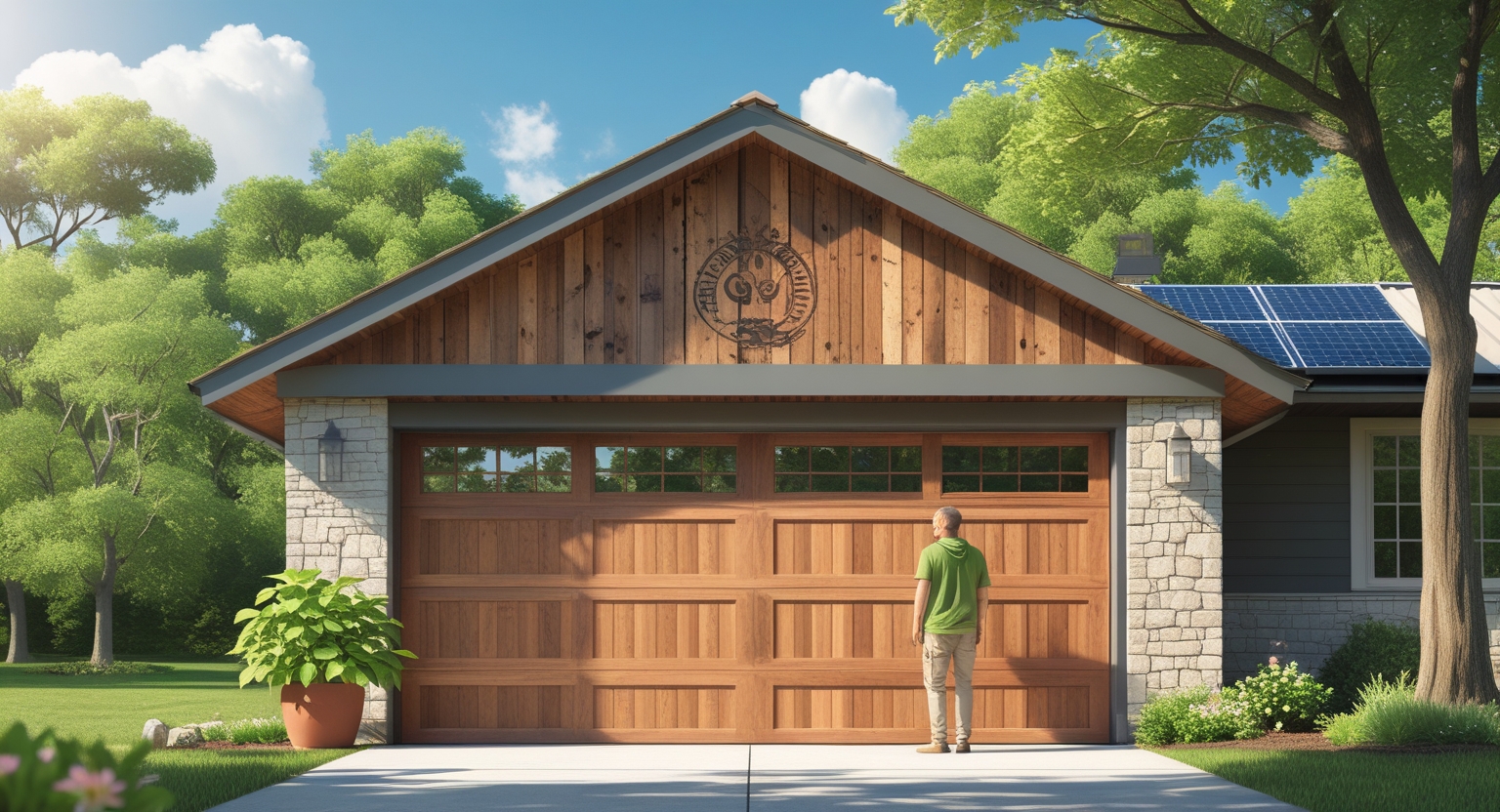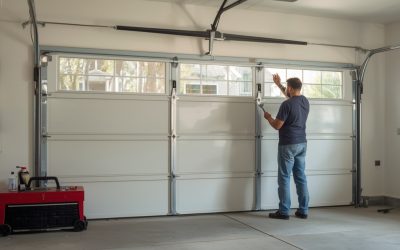Garage doors might not be the first thing that comes to mind when thinking about sustainability, but they play a surprisingly important role. As more people adopt eco-conscious lifestyles, it’s worth considering the environmental impact of your garage door—especially when installing a new one or replacing an old model. Making informed decisions about materials, insulation, and manufacturing can reduce both waste and energy consumption.
Let’s explore the environmental implications of garage doors and practical ways to choose more sustainable options.
Why Eco-Friendly Garage Doors Matter
Garage doors are among the largest moving components in a home or commercial space. While they provide security, insulation, and curb appeal, they also contribute to your property’s carbon footprint. From production to disposal, the materials used in garage doors—whether steel, aluminum, wood, or fiberglass—have lasting environmental consequences. Opting for more sustainable designs and materials can significantly lower your ecological impact.
What to Look for in an Eco-Friendly Garage Door
Sustainability goes beyond material choice. Consider these features when selecting a garage door with a lower environmental footprint:
Energy Efficiency
Insulated doors help reduce heat loss during winter and keep interiors cooler during summer. Properly installed doors with high thermal performance contribute to overall energy savings.
Sustainable Materials
Recycled or recyclable materials such as steel, aluminum, or sustainably sourced wood are more environmentally responsible than traditional options.
Durability
High-quality, weather-resistant doors last longer, reducing waste and the need for frequent replacements.
Environmental Pros and Cons of Common Materials
Understanding the material options available can help you make a more informed decision:
Steel
Pros: Strong, durable, and fully recyclable. Traditional steel garage doors have a long lifespan and can be an excellent eco-conscious option when made from recycled steel. Cons: The production process is energy-intensive, so recycled content is key to reducing environmental impact.
Fiberglass
Pros: Lightweight, low maintenance, and rust-resistant. Well-insulated fiberglass doors offer good energy performance.
Cons: Fiberglass is not biodegradable and may not be recyclable in all regions.
Wood
Pros: Renewable and biodegradable when sourced from certified sustainable forestry programs. Wooden doors, especially traditional or carriage-style options, add charm and eco-friendly appeal.
Cons: Requires ongoing maintenance and may not be ideal for extreme climates due to susceptibility to warping or decay.
Aluminum
Pros: Fully recyclable and often made with recycled content. Lightweight and rust-resistant, aluminum doors are a good fit for sustainability-minded homeowners.
Cons: Like steel, aluminum production consumes a lot of energy but remains eco-friendly when responsibly sourced.
Why Insulation Matters
Choosing a door with proper insulation can dramatically improve your property’s energy efficiency. Look for models with high R-values, which indicate better thermal resistance. Sealing the edges of the door also minimizes air leakage, helping to maintain consistent indoor temperatures and reduce reliance on heating and cooling systems.
What to Do with an Old Garage Door
If you’re upgrading, consider how to dispose of your existing garage door responsibly:
- Steel or aluminum parts can often be sold or donated for scrap.
- Wooden doors may be repurposed as reclaimed lumber or DIY furniture.
- Some fiberglass components may be recyclable depending on local facilities.
Check with your installer or local waste management provider for recycling or reuse programs.
The Manufacturer’s Role in Sustainability
Supporting environmentally conscious brands also makes a difference. Look for manufacturers that prioritize eco-friendly production methods, use sustainable materials, and hold environmental certifications such as ISO 14001. Many companies are also shifting to greener packaging and delivery practices.
Top Benefits of Choosing a Sustainable Garage Door
Longer Lifespan
High-quality materials last longer, which reduces replacement frequency and waste. For example, commercial rolling service doors can function efficiently for decades with proper care.
Lower Energy Bills
A well-insulated garage door eases the load on your HVAC system, which can lower your utility costs significantly over time.
Support for Sustainability Goals
Choosing sustainable products helps reduce landfill contributions, lower emissions, and align your property with environmental best practices.
Smart Tips for Choosing an Eco-Conscious Garage Door
- Check R-Values: The higher the number, the better the insulation.
- Ask About Material Sourcing: Opt for doors that use recycled or responsibly sourced components.
- Choose Timeless Designs: Classic, durable styles are less likely to go out of fashion and require replacement.
- Work with Certified Installers: Professionals ensure the door is installed properly for maximum performance and longevity.
Ongoing Maintenance Makes a Difference
Even the most energy-efficient garage door won’t stay that way without proper care. Regular maintenance, timely repairs, and basic cleaning all help preserve the door’s performance. Contact trusted local professionals for service tips and seasonal checkups.
Redefine Your Garage Entry Sustainably
A garage door isn’t just a functional feature—it’s a long-term investment in your home’s efficiency and environmental impact. By considering material sustainability, insulation, and proper maintenance, you can reduce your ecological footprint while enhancing your property’s value and curb appeal.
Thinking about upgrading your garage doors in Fremont? Visit Darkinson Door to explore a wide range of eco-friendly options designed to match your lifestyle and sustainability goals.
Start your green transformation today.





0 Comments